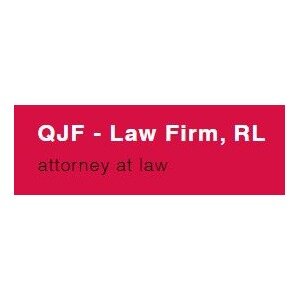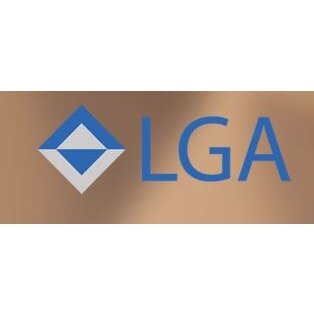Best Structured Finance Lawyers in Funchal
Share your needs with us, get contacted by law firms.
Free. Takes 2 min.
List of the best lawyers in Funchal, Portugal
About Structured Finance Law in Funchal, Portugal
Structured finance is a complex area of financial law that involves project finance, securitizations, asset-backed securities, syndicated loans, and other sophisticated financial instruments. In Funchal, the capital of Madeira, structured finance plays an essential role in supporting a diverse range of economic activities, especially given the city's unique status within the Madeira International Business Centre (MIBC). Legal professionals specializing in this field are vital for businesses seeking to structure transactions that comply with Portuguese law, European Union regulations, and local Funchal requirements.
Why You May Need a Lawyer
Lawyers with expertise in structured finance can offer invaluable assistance in several scenarios, including:
- Structuring complex financial deals or investments in Madeira
- Ensuring compliance with local, national, and EU regulations
- Securitization of assets by banks or companies based in Funchal
- Arranging cross-border financing or syndicated loans involving Madeira entities
- Guiding clients through the tax incentives provided by the Madeira Free Trade Zone
- Mitigating risks involved in mergers, acquisitions, or project finance transactions
- Resolving disputes related to structured finance instruments
- Advising on the legal implications of derivatives and swaps
Whether you are a corporation, investor, financial institution, or entrepreneur, having expert legal guidance helps safeguard interests and ensures compliance with all relevant laws.
Local Laws Overview
Structured finance activity in Funchal is subject to a combination of local, national, and EU-level regulations. Key aspects include:
- Portuguese Civil Code - Governs contractual obligations and property matters essential to finance transactions.
- Portuguese Securities Code - Regulates public offers, securities issuance, and transparency for asset-backed financial products.
- Bank of Portugal and CMVM Regulations - The Bank of Portugal oversees banking activities, while the Comissão do Mercado de Valores Mobiliários (CMVM) regulates capital markets, ensuring stability and investor protection.
- Madeira International Business Centre (MIBC) - Provides specific regulatory and tax frameworks for companies operating in Funchal, especially for financial entities within the Free Trade Zone.
- Anti-Money Laundering Laws - Stringent measures are in place to prevent illicit financial flows through structured finance mechanisms.
- EU Directives - Regulations such as the Securitization Regulation and Capital Requirements Directive harmonize structured finance practices across EU member states, including Portugal.
It is crucial to consult with a legal expert with local experience, as certain rules and practices may differ from mainland Portugal owing to the special status of Madeira.
Frequently Asked Questions
What is structured finance, and how is it used in Funchal?
Structured finance refers to complex financial instruments and arrangements, such as securitizations and syndicated loans, used by companies and financial institutions to manage risk and access capital. In Funchal, these solutions are often tailored to the needs of local businesses, including those taking advantage of the Madeira International Business Centre.
Who regulates structured finance transactions in Funchal?
The Bank of Portugal regulates general banking activities, the CMVM (Portuguese Securities Market Commission) oversees securities and investment markets, and Madeira's local authorities oversee compliance with the rules of the International Business Centre.
Is Madeira considered a tax haven for structured finance activities?
Madeira, and specifically the MIBC, provides tax incentives approved by the European Union, but it is not a tax haven. There are strict substance requirements and regulatory oversight to ensure transparency and compliance with international standards.
What are the main types of structured finance products in Funchal?
Common products include asset-backed securities, project finance structures, syndicated loans, capital market instruments, and tailored investment vehicles, sometimes using Madeira's free zone status.
Do I need local legal representation for a deal in Funchal?
Yes, local legal counsel ensures that transactions adhere to Madeira's unique regulations and exploitable tax frameworks, minimizing legal and financial risks.
What is the role of notarization and public registration in structured finance transactions?
Many structured finance agreements, particularly those involving collateral, must be notarized and registered with public authorities in Portugal, including Funchal, to be legally enforceable.
How does EU law affect structured finance in Funchal?
As Portugal is an EU member, all structured finance deals must comply with relevant EU regulations, such as risk retention and disclosure obligations for securitized assets, ensuring high standards of transparency and investor protection.
What are the risks of non-compliance in structured finance?
Non-compliance can lead to hefty fines, legal disputes, invalidation of contracts, and loss of tax advantages. Enforcement actions may be taken by local authorities or the CMVM.
How can I verify if a local structured finance advisor is qualified?
Verify the advisor's registration with the Portuguese Bar Association (Ordem dos Advogados) and their expertise in structured finance and Madeira-specific regulation.
Are there incentives for foreign investors to use Funchal for structured finance?
Yes, the Madeira International Business Centre offers attractive tax rates and simplified administrative procedures for eligible entities, making Funchal an appealing location for structured finance transactions. However, eligibility requirements and compliance with EU standards are strictly monitored.
Additional Resources
For more information or support with structured finance in Funchal, consider reaching out to the following resources:
- Comissão do Mercado de Valores Mobiliários (CMVM) - The Portuguese Securities Market Commission is the primary regulator for securities and related products.
- Banco de Portugal - The central bank oversees banking activities and related financial markets.
- Sociedade de Desenvolvimento da Madeira - The official body managing the Madeira International Business Centre offers information about tax incentives and regulatory compliance for businesses.
- Portuguese Bar Association (Ordem dos Advogados) - Provides directories of licensed legal practitioners in Madeira and throughout Portugal.
- Regional Government of Madeira - For region-specific regulations, incentives, and business support.
Next Steps
If you require legal assistance regarding structured finance in Funchal, follow these steps:
- Assess your needs and gather all relevant financial and business documentation.
- Identify and contact a legal expert who specializes in structured finance and is familiar with Madeira's regulatory landscape.
- Schedule a consultation to discuss your situation and clarify all available options, compliance requirements, and potential risks.
- Ensure your advisor is registered with the Portuguese Bar Association and has verifiable experience in complex cross-border or local finance deals.
- Consider reaching out to local business organizations or government bodies for additional guidance and recommendations.
- Stay informed about regulatory updates that may impact your transaction or ongoing business arrangements in Funchal.
Taking a proactive approach and working with a reputable legal team will help ensure your structured finance activities in Funchal are successful and compliant with all relevant laws.
Lawzana helps you find the best lawyers and law firms in Funchal through a curated and pre-screened list of qualified legal professionals. Our platform offers rankings and detailed profiles of attorneys and law firms, allowing you to compare based on practice areas, including Structured Finance, experience, and client feedback.
Each profile includes a description of the firm's areas of practice, client reviews, team members and partners, year of establishment, spoken languages, office locations, contact information, social media presence, and any published articles or resources. Most firms on our platform speak English and are experienced in both local and international legal matters.
Get a quote from top-rated law firms in Funchal, Portugal — quickly, securely, and without unnecessary hassle.
Disclaimer:
The information provided on this page is for general informational purposes only and does not constitute legal advice. While we strive to ensure the accuracy and relevance of the content, legal information may change over time, and interpretations of the law can vary. You should always consult with a qualified legal professional for advice specific to your situation.
We disclaim all liability for actions taken or not taken based on the content of this page. If you believe any information is incorrect or outdated, please contact us, and we will review and update it where appropriate.










